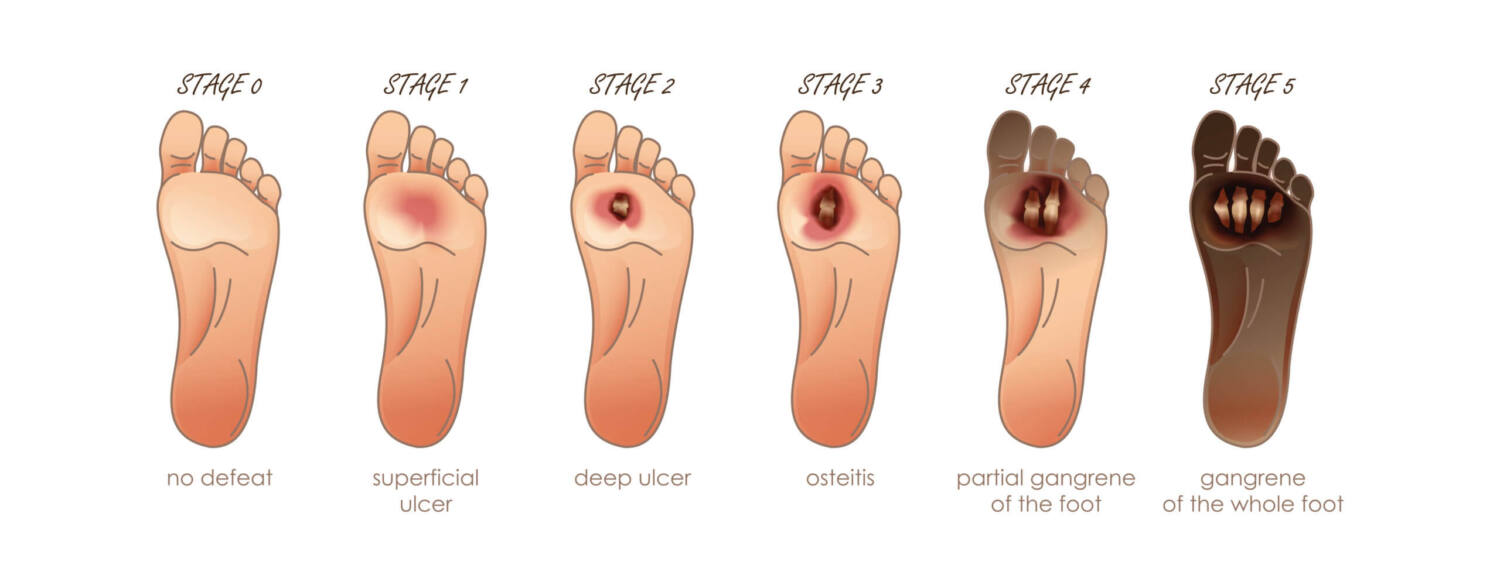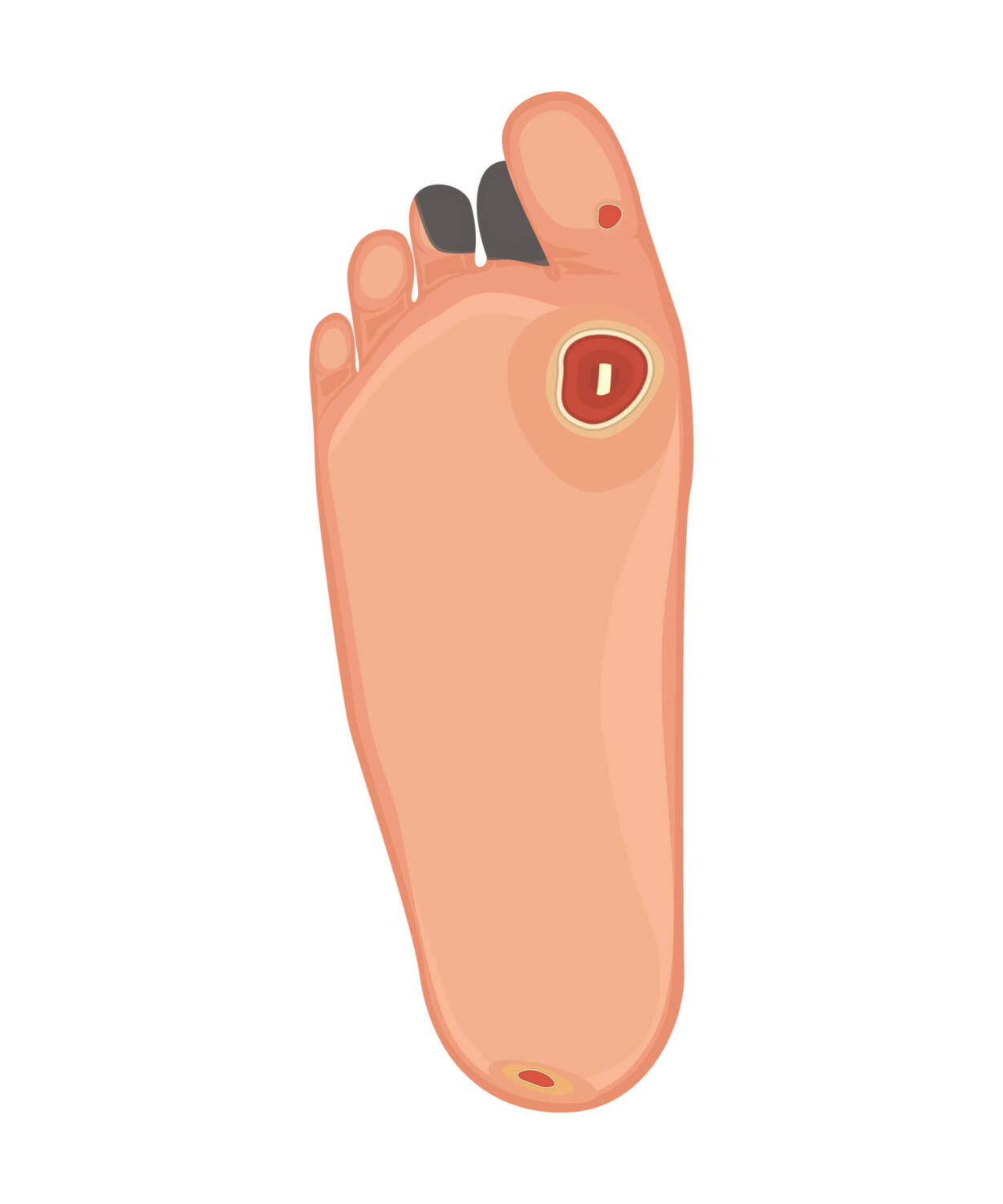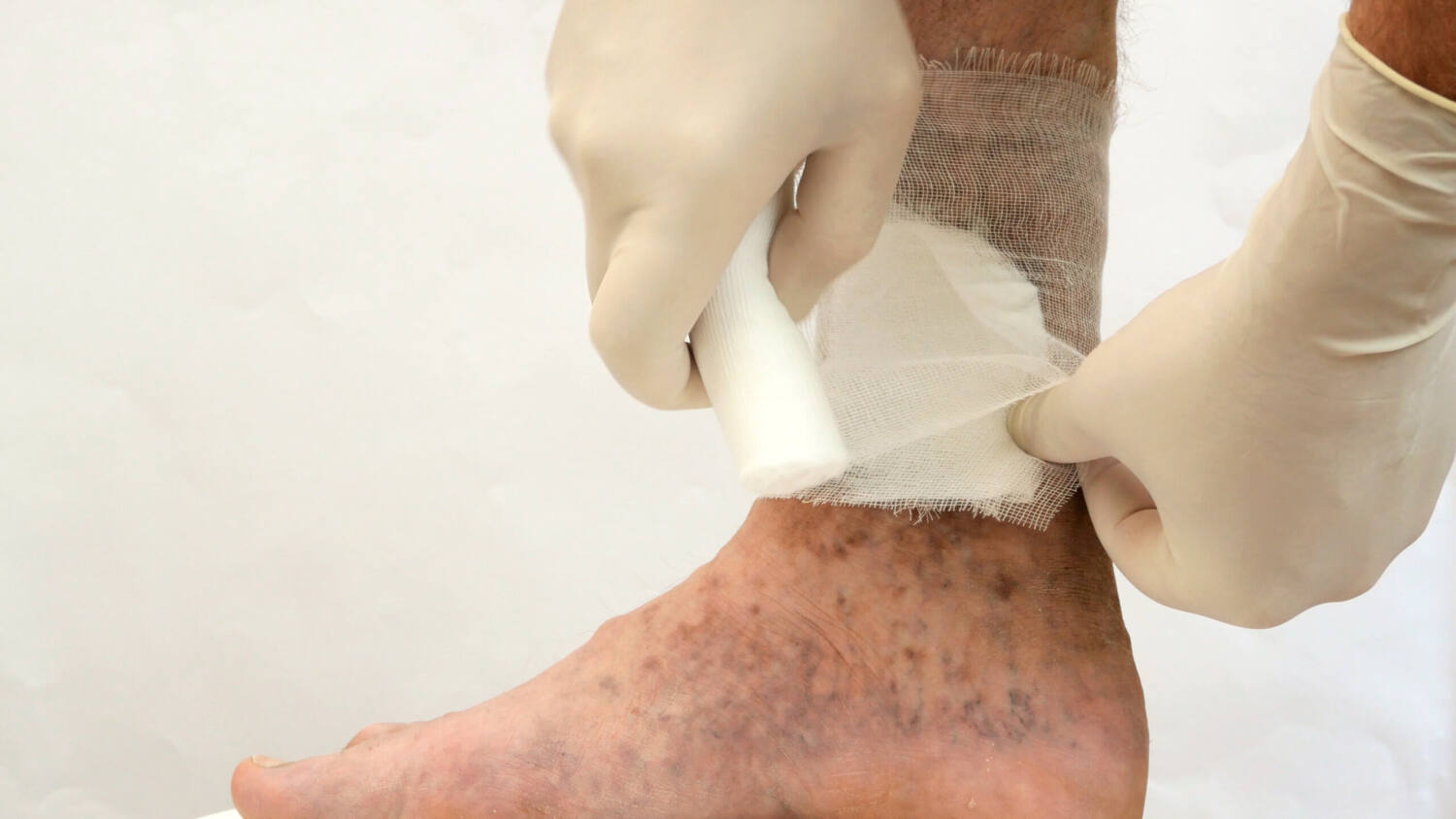You’re Not Alone
People who have chronic or persistent wounds that do not heal may find that it is due to underling venous or arterial disease. Wounds that do not heal are chronic sores or ulcers on the toes, feet, or legs. These sores can cause pain, odor, and oozing pus from their openings, which make it difficult to walk and function normally.
Schedule a Free Screening*
REQUEST A FREE SCREENING*
|
|

Venous causes and symptoms
- The skin may thicken and become hard
- Changes in color, usually black or dark bluish color, around the wound area
- Swelling and redness may develop
- Fluid may discharge from the wound
- A foul-smelling odor may appear
Arterial causes and symptoms
- Legs that feel fatigued
- Pain in the affected limb may be felt while sleeping or resting
- Persistent and increasing pain around the wound area
- Skin may be cool to touch and hairless
- Gangrene, or black toe, may also occur


Risk Factors
- Obesity or being overweight can put pressure on your legs and restrict healthy blood flow. Over time skin damage and leg sores may occur.
- Certain medical conditions such as high cholesterol, high blood pressure and diabetes can increase the likelihood of developing non-healing wounds.
- Smoking can damage the veins and their ability to transport blood.
- History of varicose veins can predispose you to developing these types of sores.
- Being older than 60 can increase the likelihood of developing arterial or venous disease.
It’s in the genes
In most cases, vein disease is genetic. So, if your parents or grandparents have or had varicose or spider veins, they are likely to pass them down to you.
Contact Us for a Consultation
United Vein & Vascular Centers is a designated IAC-accredited vascular testing center with board certified physicians and surgeons specializing in vein, vascular, and wound procedures. Your leg health and quality of life are important to us. Let us help you get back on your feet. A majority of testing and treatments for non-healing wounds can be performed outpatient without requiring hospitalization. Most insurance providers including Medicare cover wound treatments; feel free to ask us about your coverage. We’re available to answer any questions or address any concerns you may have about seeking wound treatment. Call us today to talk about taking charge of your health.
